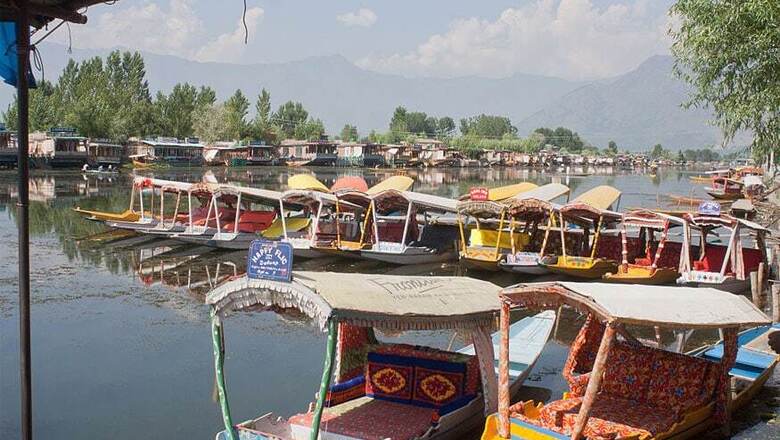
views
Srinagar: Tourism sector in Kashmir has suffered a loss of around Rs 3,000 crore as the 77-day ongoing unrest in the valley resulted in sharp decline of tourists.
According to preliminary estimates, tourism department officials said the key sector of states economy has suffered a loss of around Rs 3,000 crore due to the unrest which broke out on July 9 following the killing of Hizbul Mujahideen commander Burhan Wani in an encounter with security forces a day earlier.
"The tourism destinations and hotels both in private and government sector have been worst affected and most of the hotels are left with zero occupancy," they said.
The officials said several film crews who were scheduled to be in Kashmir for shooting of films during summers also changed their destination in view of the prevailing situation in the Valley.
Managing Director, Jammu and Kashmir Tourism Development Corporation (JKTDC), Shahid Iqbal Chaudhary said most of the Corporations properties in Gulmarg, Pahalgam, Sonamarg, Yousmarg and other destinations have two-four per cent occupancy which ought to have been 90-100 per cent around this time of the year.
Similarly, accommodations of Tourism Department and Tourism Development Authorities have also witnessed a shortfall of 90-95 per cent compared to last year.
"Not only the tourist arrivals, most of the major infrastructure projects which were to be taken up in Kashmir under Prime Ministers Development Plan (PMDP) have also come to a halt," the officials said.
They said Rs 400 crore were available to the department under PMDP for infrastructure development at new and existing destinations.
"Under this programme, the department had formulated projects for infrastructure development at Daksum, Doodhpathri, Kokernag, Verinag, Pahalgam and Salamabad (Uri).
All these projects are now in limbo because of the prevailing situation," the official said.
The people associated with tourism trade apprehend that the prevailing situation could adversely affect the tourist arrivals during the next year as well with disastrous implications for the local economy.















Comments
0 comment